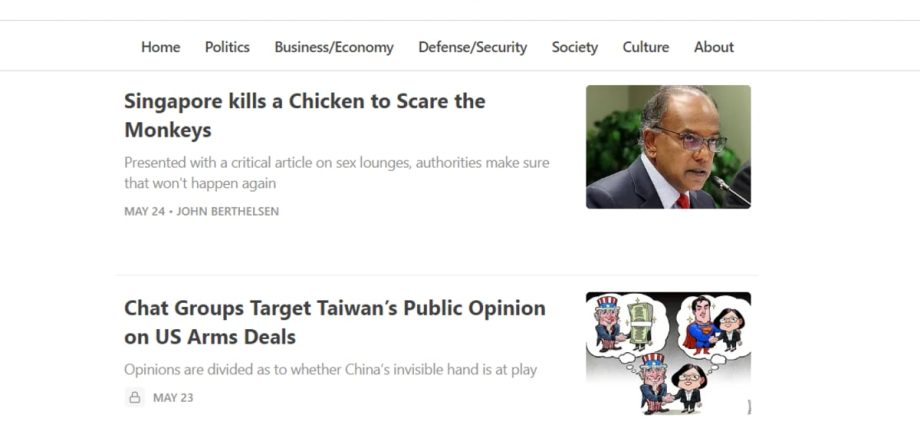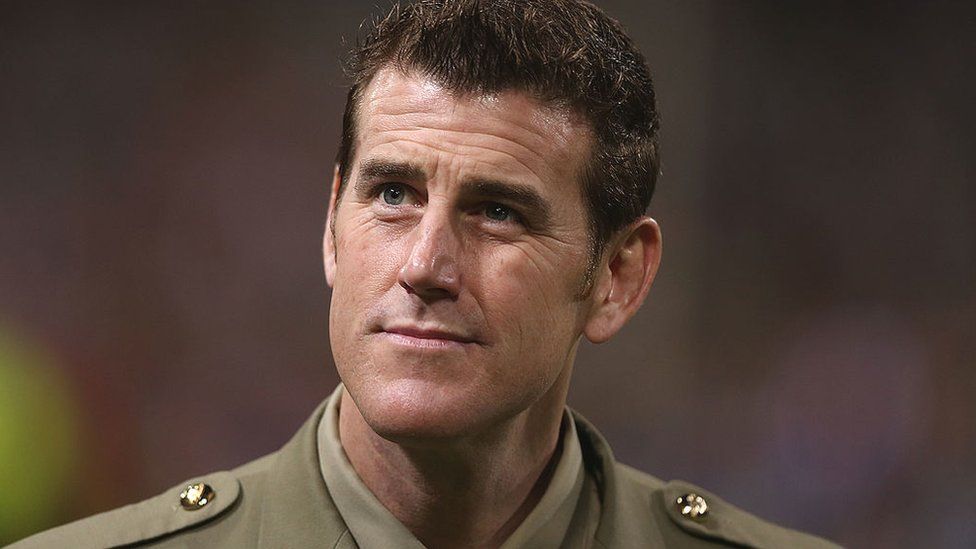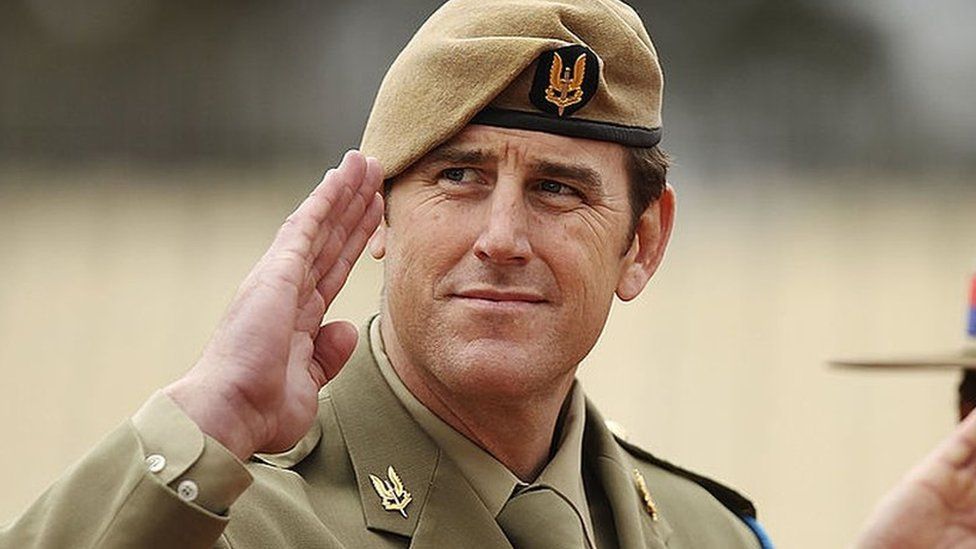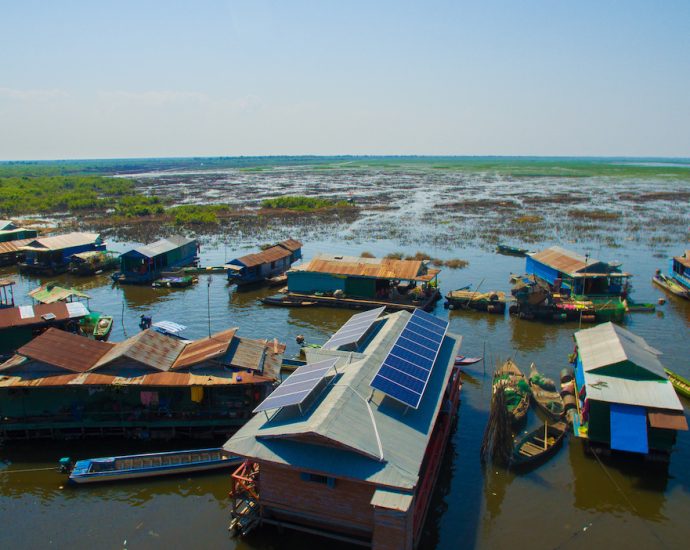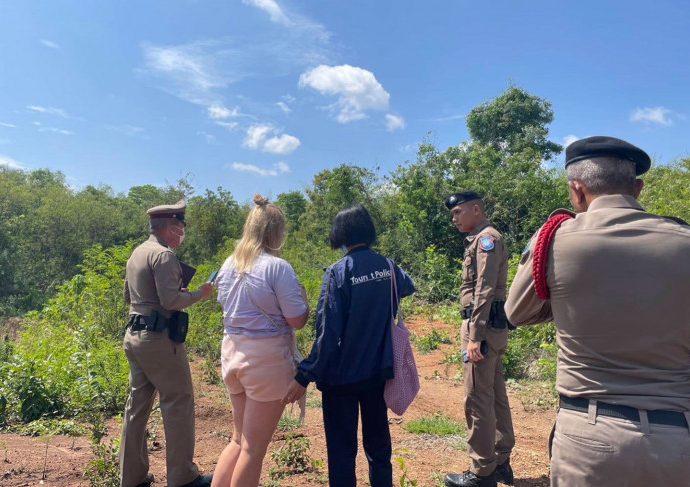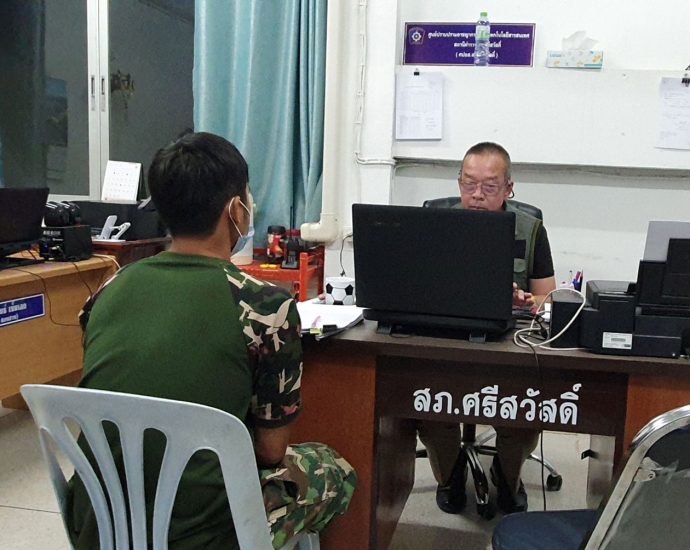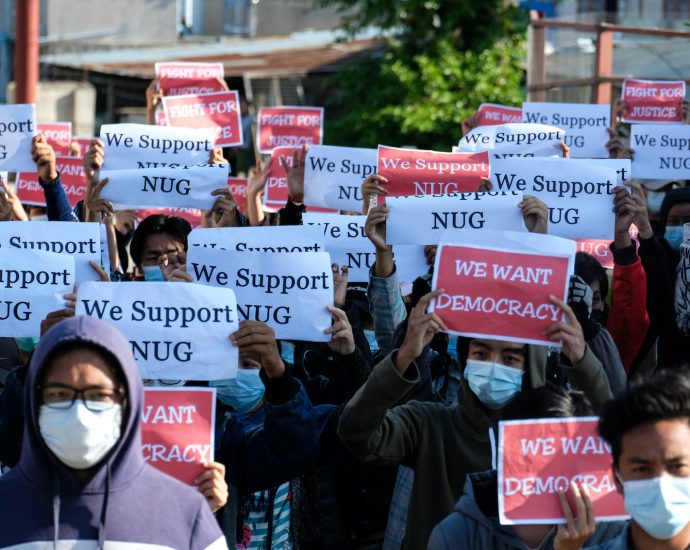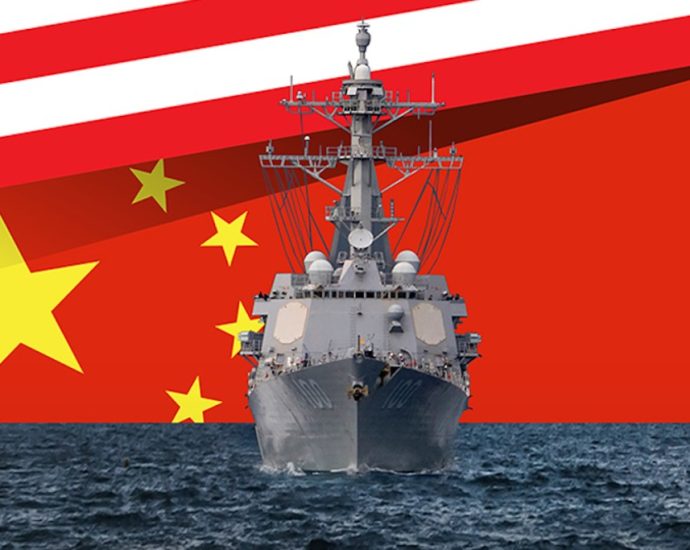Singapore to block Asia Sentinel website for not complying with POFMA correction direction
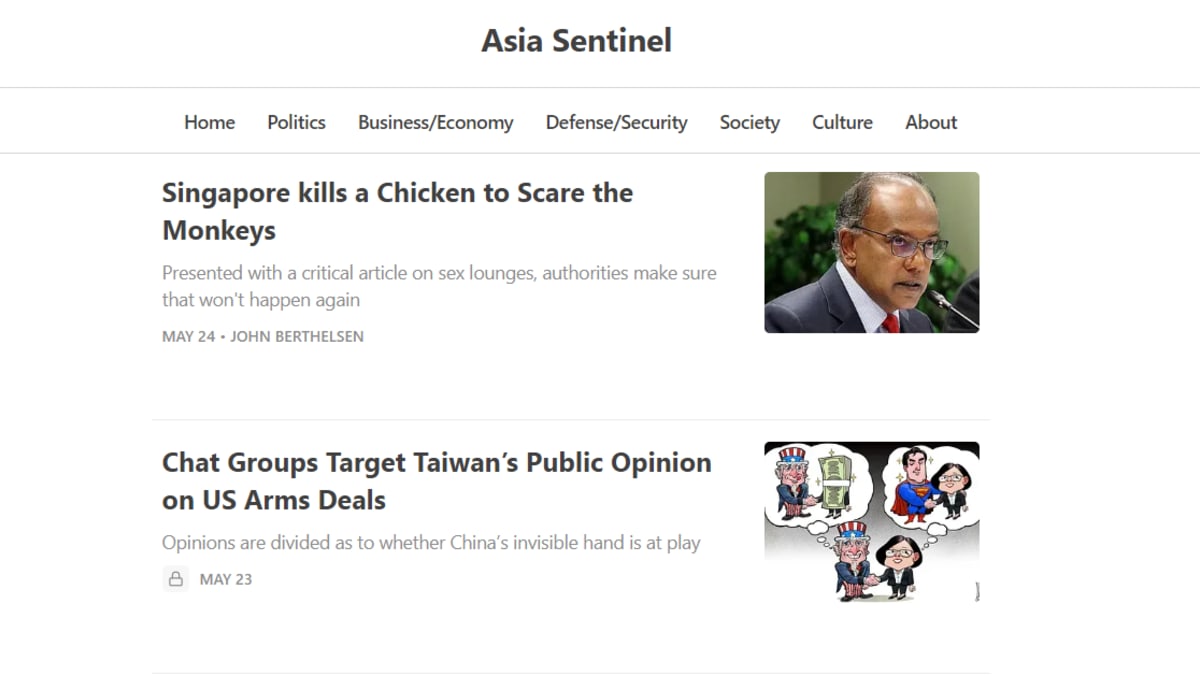
SINGAPORE: Internet access service providers in Singapore have been ordered to block the online publication Asia Sentinel after its non-compliance with a correction direction under the Protection from Online Falsehoods and Manipulation Act (POFMA), the Ministry of Communications and Information (MCI) said on Friday (Jun 2).
The California-registered publication was required to carry a correction notice alongside its May 24 article, which the Ministry of Home Affairs (MHA) said contained several falsehoods.
The Infocomm Media Development Authority has been directed to issue access blocking orders following Asia Sentinel’s non-compliance with the correction direction, MCI said in its press release on Friday.
MCI said that the correction direction issued to Asia Sentinel required the facts to be juxtaposed against the falsehoods, so that end-users in Singapore can read both versions and draw their own conclusions.
“While Asia Sentinel carried the correction notices, this was not done in compliance with the requirements of the correction direction for the respective correction notices to be situated at the top of the article and at the top of the main page of the website,” MCI added.
The access blocking orders require internet access service providers to disable access for end-users in Singapore to the online location where the falsehoods were communicated, it said.
The access blocking orders will be cancelled should Asia Sentinel subsequently comply with the “full requirements” of the correction direction.
MHA reiterated earlier on Friday that Asia Sentinel did not have to take down its May 24 article and the online publication was only required to post the correction notice in the manner that has been stipulated.
“If Asia Sentinel truly believes in free speech, it should be happy for its readers to read both the article and the correction notice, and make up their own minds which is true,” the ministry said.
POFMA’s primary tool to correct falsehoods is via a correction notice, “which must be placed in a specified proximity to the original post with a link to the government’s clarification”, according to MHA.
“This is akin to the right of reply practised by newspapers and magazines.”
Similar requirements have been placed on other recipients of correction directions and they have complied, MHA noted.
The ministry added that the government may have to take “further action” if Asia Sentinel does not comply with the correction direction.
A check by CNA at 3.30pm on Friday found that the correction notice on Asia Sentinel’s article was placed below an editor’s note which stated the online publication was “reserving the right to answer their (the Singapore government’s) demand at a future time” and that “we stand by our story”.
The correction notice was also not carried at the top of the main page of its website.
Ben Roberts-Smith case: Will Australia see a war crimes reckoning?
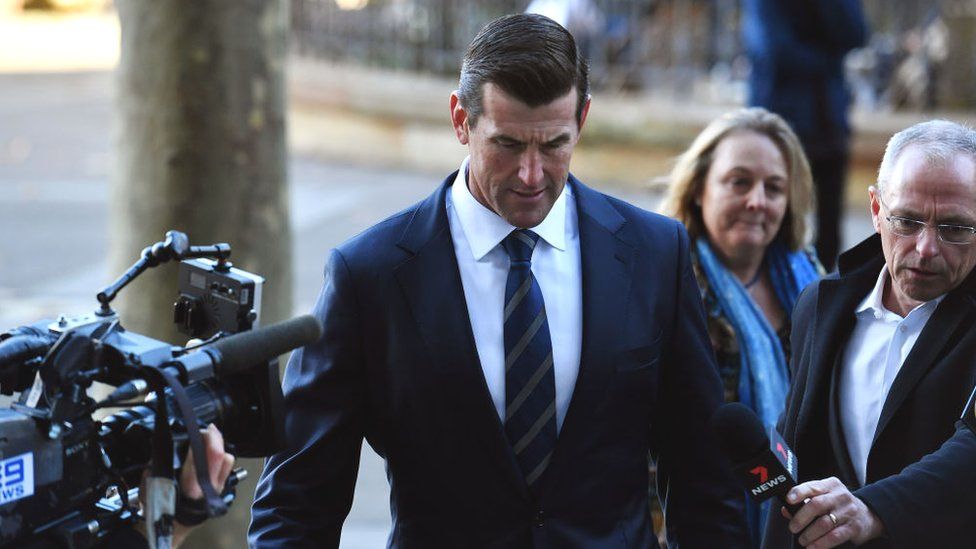 Getty Images
Getty ImagesOn Thursday, a judge calmly delivered an extraordinary ruling that will go down in Australian history.
The country’s most-decorated living soldier, Ben Roberts-Smith, had lost a defamation case against three newspapers who reported he had murdered unarmed prisoners and civilians while serving in Afghanistan.
The newspapers’ allegations that Mr Roberts-Smith was actually a war criminal, a liar and a bully were “substantially true”, the judge said in his civil case ruling.
The case is the first time an Australian court has assessed accusations of war crimes by Australian forces – ahead of what many predict will be a wider reckoning in the years to come.
‘Disastrous miscalculation’
Justice Anthony Besanko’s finding that four of six murder allegations – all denied by Mr Roberts-Smith – were in fact true shredded what was left of the Victoria Cross recipient’s reputation.
The former soldier’s decision to launch the defamation case has been called a “disastrous miscalculation” and an “expensive own goal”, and it could have far-reaching consequences for him.
With the civil case dismissed, attention has turned to whether Mr Roberts-Smith will now face criminal charges.
That’s unclear, legal experts say, because civil trials require a far lower burden of proof – the newspapers only had to show the allegations were more likely to be true than not.
Dr Jelena Gligorijevic, a senior lecturer in law at the Australian National University (ANU), says prosecutors will now have to decide whether there is sufficient evidence to prove the murders “beyond reasonable doubt”.
“That’s very, very different from proving on a balance of probabilities,” she tells the BBC.
“This defamation judgement is not at all conclusive on whether they will prosecute, and then whether they will be successful.”
There are already calls for Mr Roberts-Smith to be stripped of his military honours, and for glowing tributes dedicated to him in the Australian War Memorial (AWM) – which include portraits and his uniform and medals – to be removed.
On Friday, the AWM said it was now “considering carefully the additional content and context to be included” in displays which reference the former Special Air Service (SAS) corporal.
Others however have said that Mr Roberts-Smith is innocent until proven guilty in a criminal court, arguing no action should be taken until that point.
Mr Roberts-Smith’s lawyer has said they will comb the full defamation case judgement, leaving the door open for an appeal.
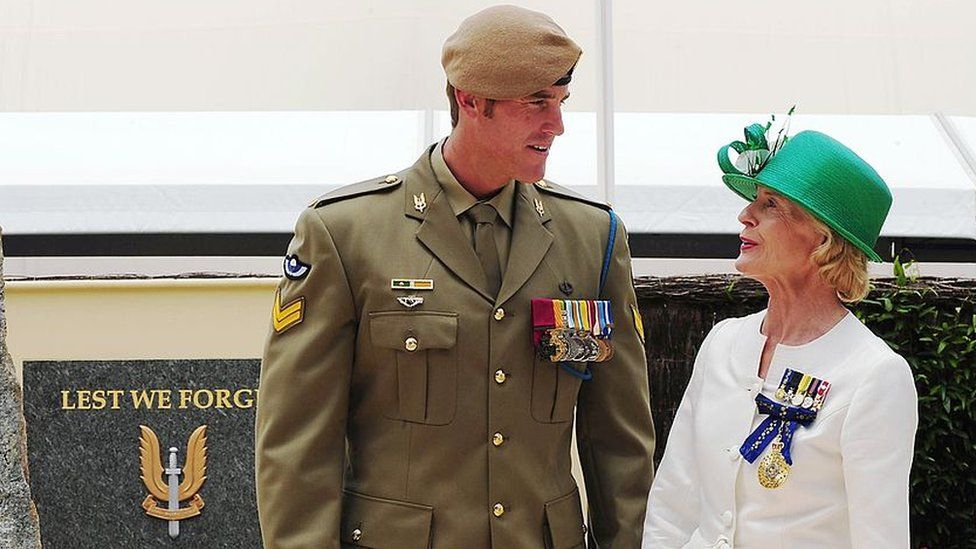
But the civil trial is already rumoured to have cost around A$25m (£13.2m; $16.3m). Traditionally, the losing party of any civil suit pays the legal costs of each side.
And Mr Roberts-Smith is newly unemployed. On Friday, his employer – Seven West Media – said it had accepted his offer to resign from a high-ranking role.
Dozens of investigations under way
The trial has also unearthed more tough questions for Australia’s army, which has long been considered by the public to have a distinguished legacy.
“People express great pride in the way in which Australia has fought – this is what’s known as the Anzac legend,” says Peter Stanley, the former principal historian at the AWM.
That legend is famously traced to a doomed offensive carried out by Australian troops at Gallipoli, Turkey, in World War One. It embodies a spirit of “egalitarianism and mutual support” that Australians still turn to in times of hardship and conflict, according to the AWM.
Each year, Anzac Day brings millions of Australians together at dawn ceremonies to remember those who served, and in particular, those who did not make it home.
Once feted as a paragon of the Anzac legend, Ben Roberts-Smith has now become the face of accusations Australian soldiers committed war crimes.
In 2020, a landmark investigation known as the Brereton Report found “credible evidence” that elite soldiers unlawfully killed 39 people in Afghanistan.
It kept most details a secret but said the allegations included what was “possibly the most disgraceful episode in Australia’s military history” – a redacted event which occurred in 2012.
The four-year-long inquiry found a “warrior culture” within Australia’s special forces, and recommended that 19 current or former soldiers should be investigated over alleged killings of prisoners and civilians from 2009-13.
Earlier this year former SAS soldier Oliver Schulz became the first person to be charged with the war crime of murder.
In the wake of the report, Australia’s government set up an Office of the Special Investigator (OSI), which confirmed last week that “40 matters” are currently under joint investigation with the police.
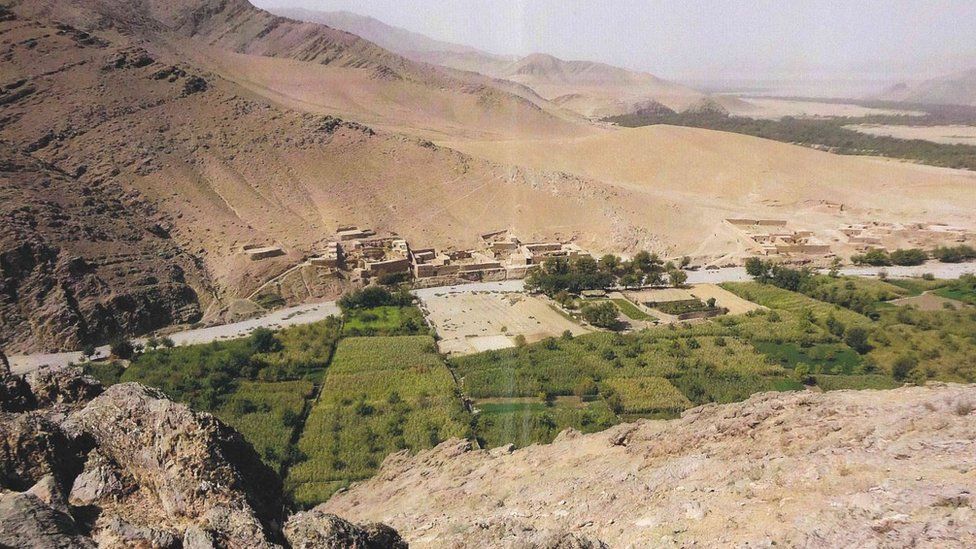
Mr Roberts-Smith’s actions “certainly fall within the scope” of the OSI’s work, says international law Prof Donald Campbell from the Australian National University.
But none of the evidence presented in the defamation case can be used in any criminal trial, and investigations would have to start afresh, he says.
“The government has supported the special investigator because they know that if they are going to bring any successful criminal prosecutions, they need to go out and collect evidence in Afghanistan,” he tells the BBC.
Regardless of whatever further evidence is gathered, many experts say the Brereton Report and testimonies from Mr Roberts-Smith’s case warrant a deeper reckoning.
“We have to not forget that Ben Roberts-Smith and others accused of war crimes were not operating alone,” says James Connor, a military sociologist at the University of New South Wales.
“They were always under the command of others. They were always part of a group, and responsibility for what went wrong has to be shared widely.”
“That’s not to diminish their actions… but the culture is rotten and the cover-up which has flowed from that is also rotten.”
Australia’s reliance on “tiny” numbers of professional soldiers carrying out multiple tours of duty in conflict zones is another thing “that we ought to reflect on”, Prof Stanley says.
Last year, a secret report obtained by the Guardian Australia under freedom of information laws warned of morale issues and a “high demand” for mental health services among Australia’s elite forces.
“We cannot put people into harm’s way repeatedly without appropriate support and oversight of what they’re doing and how,” says Mr Connor.
He argues the Australian Defence Force has had a “cultural problem” for “decades”, and that secrecy, tribalism and “misguided loyalty” have been allowed to flourish.
“Defence has tried to argue that it’s a few bad apples, or perhaps even a bad barrel here and there… but overall, the culture needs to change and change rapidly,” he adds.
But Prof Stanley believes the painful examination of the darker chapters of Australia’s war record could eventually provide a redemptive moment.
“Characteristically Australians believe in a fair go, [which] involves things like admitting that things go wrong, and investigating them if need be,” he says.
“Australians might be embarrassed or even ashamed that these allegations have been made, but the fact that Australia is openly and properly investigating them is, I think, a source of pride.”
Related Topics
Cambodia navigates nexus of crises
Climate change, the Covid-19 pandemic, and geopolitical conflicts have caused enormous disruptions to energy and food markets, driving prices to record highs, impacting the poor most severely. In Cambodia, hard-earned development gains were lost, and the country’s Human Development Index regressed to its 2018 level.
The cascading energy, food and financial crises impacted economic, education, employment and health outcomes, particularly for the most vulnerable.
At the onset of the pandemic in 2020, the Cambodian government upscaled its social assistance. More than 700,000 poor and vulnerable households received cash assistance to offset the socioeconomic impacts of the pandemic.
In 2022, about 500,000 additional near-poor households were included to minimize their vulnerability to the impacts of floods and inflation.
Undoubtedly, these measures slowed the loss of development and the slide of vulnerable households into poverty. But immense pressure was exerted on public finances and the financial resources available for achieving the Sustainable Development Goals (SDGs) had to be repurposed.
Even before the pandemic, achieving the SDGs was highly dependent on sustained investment, the adoption of effective policies, and the ability to implement them on time. Although rapid economic recovery in Cambodia is attracting foreign direct investment, refueling the economic engines and creating jobs is still vulnerable to external shocks and uncertainties.
Interconnectedness
Although fuel and commodity prices have eased globally to varying degrees, concerns remain, as they are still above historical averages. Dependence on fossil fuels is causing a current-account deficit in the country.
In 2021, about US$57 million were spent on fuel subsidies in Cambodia. In January and February 2022 alone, the subsidy accounted for $31 million – resources that could have been invested in development.

A 2020 study indicated that Cambodia could save $250 million by 2040 in direct power-system costs if the national energy grid mix was 14% solar photovoltaic, notwithstanding other indirect environmental and socio-economic impacts (such as a 38% increase in job creation).
Such socio-economic gains cannot be underestimated. Also, the performance of the energy sector directly affects the country’s climate agenda. Cambodia increased its mitigation ambition with an emissions-reduction target of 41.7% by 2030. This included specific targets in areas such as energy efficiency.
Cambodia remains highly vulnerable to climate-change impacts. The increased frequency of extreme weather events is making harvests more unpredictable and reducing crop productivity, threatening food security and farmers’ livelihoods, notwithstanding other types of loss and damage.
In 2020, a 50% prevalence of food insecurity was reported in Cambodia. A study by the Ministry of Economy and Finance assessed that Cambodia’s expected GDP could decline by almost 10% by 2050 because of loss and damage due to climate change. Recovery requires public investments that will further reduce fiscal space.
The country is at a crossroads
New opportunities can emerge from the crisis. Innovation is vital to renew development momentum and improve resilience. This would require new technologies, business models, policy frameworks, and social advances that prioritize synergies across energy, food, and finance.
For instance, low-carbon farming offers the opportunity to optimize the use of fertilizers, raise agricultural yields, and reduce environmental impact. Clean energy improves the resilience of the agriculture sector and accelerates agri-food value chain improvement through secure irrigation, cold storage, and the use of agricultural residues for clean cooking – a health concern for rural women and girls.
Energy efficiency plays a key role by bringing gains in different sectors of the economy and reducing energy sector vulnerability and energy uncertainty. The National Energy Efficiency Policy identified that Cambodia has the potential to save 12.5 terawatt-hours of energy (1.07 million metric tons of oil equivalent) by 2030 through energy efficiency measures. The financial savings could be reallocated to support development priorities and the SDGs.
Recalibrating public financial management is vital through the integration of the SDGs in the budgeting process, exploring new approaches to revenue mobilization and reforming wasteful agricultural, food, and fossil-fuel subsidies. Cambodia has developed a methodology for monitoring and tracking SDGs-related expenditures in the national budget system, which is expected to be institutionalized soon.
Finally, as a Least Developed Country, Cambodia has been benefiting from concessional financing, but once it graduates from LDC status, its financial architecture will progressively evolve.
Unlocking private capital and scaling up private-sector investment is key to expanding SDG-related investments. It will require removing barriers to direct financing from private institutions such as high interest rates, short repayment periods, and stringent collateral requirements, as well as prioritizing SDGs’ impact investments.
This is where blended finance can also de-risk investments in the agri-food sector and clean energy, to boost business but also food and human security.
The road to resilience passes by the energy, food, and finance nexus. The risks posed by this nexus will become more significant because of growing demand for energy and food in a context of uncertainty and decreasing domestic and international financial resources for development.
A systemic approach to policymaking and investment that considers their interconnectedness, multi-sectoral nature and the need for multi-actor partnerships prioritizing synergies across energy, food, and finance is needed to break the vicious cycle of vulnerability.
National park employee charged for alleged assault, attempted rape

KANCHANABURI: A national park employee has been detained and charged after he allegedly assaulted a Lithuanian woman and attempted to rape her near a garbage dump in Si Sawat district.
Pramote Khongkham, 24, an employee hired on a temporary contract by the Erawan National Park in tambon Kradan, reported to police at Si Sawat station on Thursday to acknowledge the indecent assault charge, said Pol Maj Pakornkiart Shinathet, the station’s investigation chief.
On Friday, the national park on Friday terminated Mr Pramote from employment and urged the police pursue severe measures against him.
On Thursday afternoon, Evilija Grabauskaitem 27, accompanied by tourist police and an interpreter, filed a complaint with police. The tourist, who had bruises on her body, accused the man of assaulting her. She provided video footage and photos of the incident to the officers and guided hem to the location where the assault occurred, said Pol Maj Pakornkiart.
Police coordinated with Erawan National Park chief Prawat Phuangthong to gather details about Mr Pramote. The suspect later turned himself in to police on Thursday evening.

Pramote Khongkham, 24, an employee hired on a temporary contract by the Erawan Nationa Park in Kanchanaburi’s Si Sawat district reports to police to face charges. (Photo: Piyarat Chongcharoen)
During questioning, he told police that he had noticed the woman near the national park’s signpost as he was riding a motorcycle to buy candles from a nearby shop. Upon his return, he encountered her in the same area and honked his bike’s horn as a friendly gesture. The woman subsequently followed him on her motorcycle.
According to the suspect’s statement, he advised the woman not to follow him when he entered a forested area, but she seemed to misunderstand him.
During their walk together, he admitted to the police that he had initially felt an urge to rape her. However, he changed his mind after she fell down.
Mr Pramote said he then escorted her out of the forest and apologised for his actions. While admitting his fault, he claimed that he did not assault her but only pulled her hands.
According to the investigation, the suspect had parked his bike near a garbage dump before proceeding to the nearby forested area with the woman. He allegedly used force in an attempt to rape her, but she resisted and managed to escape.
The suspect is in police custody awaiting further legal action.
National park employee charged with attempted rape
Worker at Erawan National Park sacked after Lithuanian tourist files complaint

KANCHANABURI: A national park employee has been detained and charged after he allegedly assaulted a Lithuanian woman and attempted to rape her near a garbage dump in Si Sawat district.
Pramote Khongkham, 24, an employee hired on a temporary contract by Erawan National Park in tambon Kradan, reported to police at Si Sawat station on Thursday to acknowledge the indecent assault charge, said Pol Maj Pakornkiart Shinathet, the station’s investigation chief.
On Friday, the national park on Friday terminated Mr Pramote from employment and urged the police pursue severe measures against him.
The 27-year-old victim, accompanied by tourist police and an interpreter, filed a complaint with police on Thursday. The tourist, who had bruises on her body, accused the man of assaulting her. She provided video and photos of the incident to the officers and guided them to the location where the assault occurred, said Pol Maj Pakornkiart.
Police coordinated with Erawan National Park chief Prawat Phuangthong to gather details about Mr Pramote. The suspect later turned himself in to police on Thursday evening.

Pramote Khongkham, 24, an employee hired on a temporary contract by Erawan Nationa Park in Kanchanaburi’s Si Sawat district reports to police to face charges. (Photo: Piyarach Chongcharoen)
During questioning, he told police that he had noticed the woman near the national park’s signpost as he was riding a motorcycle to buy candles from a nearby shop. Upon his return, he encountered her in the same area and honked his bike’s horn as a friendly gesture. The woman subsequently followed him on her motorcycle.
According to the suspect’s statement, he advised the woman not to follow him when he entered a forested area, but she seemed to misunderstand him.
During their walk together, he admitted to the police that he had initially felt an urge to rape her. However, he changed his mind after she fell down.
Mr Pramote said he then escorted her out of the forest and apologised for his actions. While admitting his fault, he claimed that he did not assault her but only pulled her hands.
According to the investigation, the suspect had parked his bike near a garbage dump before proceeding to the nearby forested area with the woman. He allegedly used force in an attempt to rape her, but she resisted and managed to escape.
The suspect is in police custody awaiting further legal action.
New cryptocurrency licensing rules kick in for Hong Kongâs retail investors

Hong Kong Monetary Authority chief Eddie Yue said the city wants to give the industry flexibility to develop, innovate and create an ecosystem.
However, that does not mean a light-touch regulation.
In fact, Prof Aris said he believes the new rules allow Hong Kong to fill a void left behind by a series of meltdowns in the west.
“At the point of lowest confidence, is when you can instil more confidence in investors by showing them that it is safe to trade these assets in Hong Kong, because they are well regulated,” he said.
“There is room for Hong Kong to step in and become an international hub in the trading of virtual assets.”
ATTRACTING GLOBAL INVESTORS
Overseas investors such as Mr Chen Zhuling, who runs a Singapore-based blockchain company, is also eyeing a slice of the pie.
His firm is looking at potentially offering staking services in the city, as its crypto space grows. Staking is a way for crypto holders to earn rewards on digital assets.
“Hong Kong is never short of sophisticated funds and investors. So that’s going to have a great inflow into the crypto space,” said Mr Chen, the chief executive officer of RockX.
“After the crackdown of Signature Bank and Silvergate Bank, there are no efficient on-ramp, off-ramp services globally. (This is) where after the licensing, banks will be more comfortable to serve that need.”
More than 80 companies, including major crypto exchanges OKX and Huobi, had expressed interest to operate in the city even before the new laws kicked in.
Prof Aris said he believes these movements signal a growth trajectory, one that the Hong Kong is preparing to meet as it steps up recruitment of fintech professionals.
Another UN Myanmar envoy bites the dust
United Nations Special Envoy to Myanmar Noeleen Heyzer is leaving her position in mid-June after some 20 months of being stonewalled by the generals of the State Administration Council (SAC).
Heyzer always faced an insurmountable challenge since being appointed to the position in October 2021, just eight months after the SAC’s military coup d’etat sparked a major nationwide uprising.
The knives will likely be out for Heyzer. Inevitably, death by a thousand tweets, social media cancellation and mob frustration will denounce her efforts before a more objective assessment could, and should, take place.
None of these angry denunciations should be dismissed or derided: they register intense frustration inside and outside Myanmar at the international community’s collective failure to goad the junta into relinquishing power and restoring democracy.
But under these conditions, neither Attila the Hun nor a K-Pop band would have any real chance of something approaching a breakthrough.
And what would “success” for an envoy entail? The SAC surrendering? Freeing Aung San Suu Kyi? Achieving what she always, consistently, called for – a cessation of hostilities and ending daily abuses against civilians?
Heyzer is not responsible for any of the regime’s atrocities and was increasingly critical of them. However, more than Heyzer herself, two groups should be blamed for the lack of progress since late 2021: the SAC and the UN.

It was apparent early into Senior General Min Aung Hlaing and his SAC’s reign of terror that they had no interest in outside mediation. Heyzer was only permitted to visit once to meet the SAC leader in August 2022 and the balanced assessment of her short visit would be “unmitigated disaster.”
It didn’t help that the envoy wore a khaki-colored htamein (sarong), to which the semiotics-obsessed Myanmar political culture interpreted as a sop to the generals. State media running photos of grinning generals and Heyzer didn’t go over well either.
But in an exchange of statements, the first from Heyzer, the second from the SAC, a line-by-line refutation of her points, made it clear that there was little chance of a meaningful recovery.
Heyzer’s points were mostly consistent and principled: de-escalate violence, release political prisoners, permit unfettered humanitarian access and engage in multi-stakeholder talks.
They adhered closely to previous statements and other international efforts, and under the circumstances highly unlikely to produce any meaningful progress for Myanmar people on the ground.
The rebuttal a few days later in the state-run Global New Light of Myanmar was vintage Myanmar military obduracy. The counter-statement started with “the one-sided statement of the Special Envoy created misunderstandings about Myanmar by the international community and the public and thus, the discussions of the meeting are fully described.”
In Min Aung Hlaing’s transcribed words, he told Heyzer “I have been serving as commander-in-chief of Tatmadaw (military) since 2011, which turns 11 years. Through the experience received during these years, I regret to observe that the statements by the United Nations are one-sided.
“Accordingly, I am of the view that you, in your capacity as the special envoy of the Secretary-General on Myanmar, should overcome this issue as a priority… (t)o improve the relations between Myanmar and the United Nations, we have constructively engaged with the Special Envoy of the United Nations Secretary-General on Myanmar. I do not have any personal feelings for you. With the aim to cooperate with the United Nations, I have agreed to meet you.”
The general went on to fully deny any human rights violations: “(w)e are just targeting the location of the insurgents who attack security forces and counter them. We will never initiate the attack if there is no attack on us. And there is no government and country in the world that accepts armed attacks. I categorically reject the allegation of burning the villages and houses of the people. The Tatmadaw always protects the people of Myanmar.”
With a first meeting going that poorly, the SAC was clearly stating they had little inclination to be availed of the envoy’s entreaties. But the failure of diplomacy and engagement is a systemic United Nations failure, not an individual one of Heyzer’s.
If anyone deserves a red card for failing Myanmar since the first day of the coup, it is UN Secretary-General Antonio Guterres. When you have a poorly performing leader, an utterly dysfunctional Security Council, a bloated and bloviating General Assembly and multiple corrupt agencies competing for donor funding by inflating not just budgets but the actual ability to operate within Myanmar, casting blame on an individual envoy is grossly dishonest.

In carefully assessing Heyzer’s time in the job, the regular meetings of UN agency heads in Naypyidaw, always made public by the SAC’s propaganda machine, undermined Heyzer’s approach.
Security Council Resolution 2669 in December 2022 established the limits of UN influence, and said loud and clear, as voluminous and coherent as consensus exercises can ever get, that you have the UN special envoy and the Association of Southeast Asian Nations (ASEAN): that’s it.
Which translates to, we won’t put any more effort in than we already have. The SAC presumably knows this, especially when out of the 15 votes, China, Russia and India abstained.
And last, Heyzer had to contend with a rambunctious UN Special Rapporteur on Human Rights, Tom Andrews who has far exceeded his mandate as an “independent expert” and at times saw himself as the real special envoy to Myanmar.
On principle, Heyzer seemed an apt choice. A Singaporean social scientist, former head of the UN’s regional office in Bangkok, ESCAP, she seemed more amenable to the generals than her Swiss predecessor, or some of the previous envoys who enjoyed mixed success in very different circumstances.
But the SAC simply wasn’t interested in chit-chat, with Heyzer or ASEAN’s Five Point Consensus. They seem to only have time for Russian and Chinese officials, or the mendacious Japanese meddler Yohei Sasakawa.
Pundits will now be speculating on a suitable replacement for Heyzer. But should there be an entirely new approach to Myanmar? The envoy may have only made one visit to Myanmar, but she met with regional states and visited China. Her failure was not in being idle, but rather being ineffective in an invidious situation.
Heyzer was actually starting to push the traditional boundaries of UN envoys’ risk appetite. Her call for an Inclusive Humanitarian Forum (IHF) to be developed with the opposition National Unity Government (NUG) and key ethnic armed organizations (EAOs) such as the Karen National Union and Karenni National Progressive Party (KNPP) was an imperfect but nevertheless refreshingly unorthodox approach to addressing the humanitarian crisis sparked by the coup.
In a March statement, Heyzer suggested: “(t)he Forum could comprise a core group of (UN) Member States, notably Myanmar’s neighboring countries and other regional actors, to engage inclusively in seeking a comprehensive assessment of ground realities and identify ways to overcome obstacles for operational actors to more effectively reach those in need…the IHF discussions with local actors have proven to be an important vehicle driving constructive discussions and building greater solidarity and coherence.”

It’s likely this proposal, obviously as much a political framework as a humanitarian coordination body, caused disquiet in the more conservative UN apparatus.
Going through the motions of another candidate and the squandered time of ‘giving them a chance’ should not be an option. The UN leadership should either take the position more seriously or drop the position altogether, and deploy the funding instead to supply healthcare and food to Myanmar’s suffering people.
But taking a more holistic view, international diplomacy on Myanmar has been an utter failure, as the West is clearly exasperated with the SAC’s obtuse disregard for reason.
Far from cheering “ding dong the witch is dead” at Heyzer’s departure, critics should be bracing for whatever potential appeasement of the SAC lays ahead from a distracted and morally hollow international community whose muscle memory seems increasingly set to re-engage the abusive, coup-installed regime.
David Scott Mathieson is an independent analyst working on conflict, humanitarian and human rights issues on Myanmar
iPhone in India: Foxconn to manufacture smartphones in Karnataka by April 2024
 Getty Images
Getty ImagesApple’s biggest supplier Foxconn will start manufacturing iPhones in the southern Indian state of Karnataka by April next year, the state government has said.
The project will create around 50,000 jobs, it said.
Taiwan-based Foxconn manufactures the majority of Apple’s phones.
The firm has been making older versions of iPhones at a facility in the neighbouring state of Tamil Nadu since 2017.
Last month, the company announced it had bought 1.2m sqm (13m sqft) of land near Bengaluru city in Karnataka.
Bloomberg reported Foxconn planned to invest $700m (£566m) on a new factory in the state. On Thursday, the Karnataka government said the project was valued at $1.59bn.
Land for the factory would be handed over to company by 1 July, it said in its statement.
According to Reuters, Foxconn has set a target of manufacturing 20 million iPhones a year at the plant in Karnataka.
Apple’s decision to manufacture their flagship model in India and diversify its supply chains away from China comes as trade tensions rise between Washington and Beijing.
Apple makes most of its phones in China. In India, iPhones are assembled by several Apple suppliers, including Foxconn. It currently accounts for 5% of total iPhone production.
The company struggled to compete in the Indian market which is dominated by the much cheaper South Korean and Chinese smartphones.
Apple CEO Tim Cook was in India in April to launch the country’s first two Apple stores.
BBC News India is now on YouTube. Click here to subscribe and watch our documentaries, explainers and features.

Read more India stories from the BBC:
In turbulent Indo-Pacific, Quad must hold firm â and act fast

At a recent meeting of the four members of the Quadrilateral Security Dialogue in Hiroshima, namely the United States, Japan, India, and Australia, leaders outlined a series of critical issue areas that continue to impact stability in the Indo-Pacific region.
These included the vulnerability of undersea Internet cables, the protection of vital sea lines of communication (SLOCs), and the broader preservation of a rules-based international order.
As the Group of Seven has provided the world’s richest countries the opportunity to talk tough on “economic coercion” on the part of China, so too should the Quad send an equally strong message about China’s territorial and maritime ambitions. To do that, it must get its house in order.
First, criticisms linger about the utility of the Quad’s informal arrangement and lack of strategic direction. It has no budget, nor do any formal codes of conduct or treaties guide its conduct.
Institutionalization of the Quad seems unlikely. Many suggest it is so informal that it appears to be just talk, rather than a credible, assertive security organization. Some have even suggested that the Quad’s informal ambitions would never be fully realized.
Most of these critiques are old and fail to chart the progress it has made in becoming a firm security anchor in the region, evidenced by China’s increased wariness and alarm about its long-term presence that ultimately threatens Beijing’s geopolitical ambitions.
The Quad must work to change perceptions among countries in the Indo-Pacific region about its intentions, without raising alarms. For example, while many Southeast Asian countries have viewed the Quad with considerable suspicion and worry, that is no longer the case.
A recent survey by the ISEAS Yusof Ishak Institute found that 50% of Southeast Asian experts believed an enhanced Quad presence would be “constructive for the region,” while only 12% disagreed. Vietnam’s elevation to ”Quad Plus” status is indicative of a more receptive and agreeable Southeast Asia.
However, this must mean that the grouping cannot just be seen as an informal security organization, but a robust regional framework for cooperation within the wider Indo-Pacific region that includes not only new focus areas such as health and pandemic response, but the expansion of bread-and-butter areas such climate-change adaptation and mitigation, capacity-building, and security infrastructure development, particularly in the area of cybersecurity.
That does not mean security should be on the back burner. The challenge for the Quad is to find the right balance, where there is an awareness of Chinese aggression, but intelligent enough not to be provoked into missteps.
Comparable to what the Joint Statement of the Security Consultative Committee (“2+2”) between Japan and the US suggested, the Quad should work “to advance bilateral modernization initiatives to build a more capable, integrated, and agile alliance that bolsters deterrence and addresses evolving regional and global security challenges.”
ASEAN role crucial
Still, other challenges remain. The preservation of ASEAN (Association of Southeast Asian Nations) centrality is crucial to many of its member states, and is at the heart of the ASEAN Outlook on the Indo-Pacific (AOIP).
There are lingering concerns about the polarizing effects that US-China regional competition would bring and that consequently, they would be drawn deeper into great-power politics. Yet that does not preclude ASEAN states from developing significant partnerships with regional middle powers, such as Japan, India, Australia, or even Canada.
Quad countries should take advantage of some of this hegemonic rivalry to work with regional middle-income or small states to develop stronger bilateral relations. This is evident in Thailand’s nascent security partnership with Japan or its rapidly developing security and counterterrorism partnership with India.
There is some evidence that positive impressions among Indo-Pacific countries and Quad intentions toward regional partners are growing.
The Quad has been able to highlight its focus beyond rigid power politics to providing regional public goods, but it has also endeavored to incorporate crucial issue areas that resonate quite profoundly among ASEAN countries – and what was previously deemed a weakness, its informality, has contributed to its success.
The flexible design of the Quad reflects its members’ proactive understanding of the Indo-Pacific, a dynamic region that comprises countries of varied interests that share a common concern for formal military alliances.
To overcome the regional anxieties that have come with China’s ascent and geo-strategic posturing, the Quad must evolve. For some countries in the Indo-Pacific region, increased security posture by Quad countries is a liability, while for others it is a welcome relief.
Beijing’s attempts to dominate or accelerate its sphere of influence from the Indian Ocean to the waters of the Pacific have been met with mixed results, but where resistance has developed, it has come from both security and economic alternatives. For the Quad to be both of those things, it must act fast.
‘Relentless’ heatwaves scorch southern China, test power grids
Demand for electricity in southern manufacturing hubs, including Guangdong, has surged in recent days, with China Southern Power Grid, one of the country’s two grid operators, seeing peak power load exceeding 200 million kilowatts – weeks earlier than normal and close to historical highs. In recent days, the power loadContinue Reading

